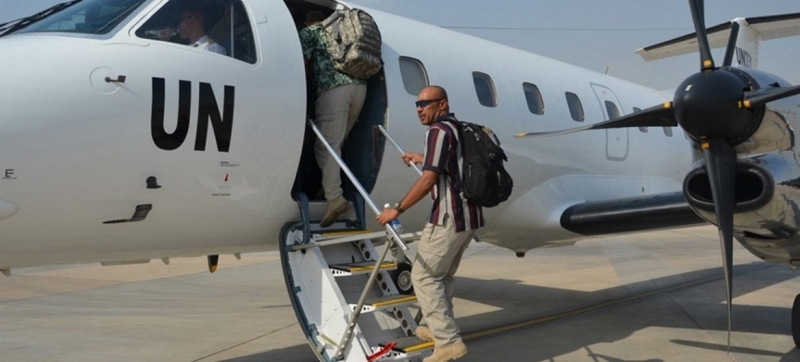
Almost half of UN staff working in conflict zones have symptoms of post-traumatic stress. UN humanitarian workers today work in conflicts of unprecedented scale UN
United Nations humanitarian personnel face increasing threats in the field, with the main danger now being not only armed groups but also state entities, Under-Secretary-General for Safety and Security Gil Michaud said at a Security Council meeting on measures to prevent attacks on UN personnel.
“We have gone from responding to one or two major emergencies to dealing with multiple, overlapping crises of unprecedented scale,” he said, citing conflicts in Gaza, Lebanon, Haiti and Somalia as examples.
Michaud stressed that the resilience of UN staff should not be taken for granted: prolonged exposure to conflict takes a serious toll on people’s psychosocial well-being and undermines their ability to carry out effective humanitarian work. According to him, almost half of UN staff working in conflict zones show symptoms of post-traumatic stress.
The UN Deputy Secretary-General recalled that only 95 states have acceded to the Convention on the Safety of United Nations Personnel, and not a single new country has signed the protocol in the past ten years.
“I urge all members of the General Assembly to accede to both agreements, and those that have already done so to fully implement the provisions enshrined in them,” said Gil Michaud.
Withdrawal of peacekeeping missions
According to the UN Deputy Secretary-General, security must be monitored especially carefully during the withdrawal of peacekeeping and political missions.
“Safety measures must be integrated into planning from the very beginning,” said Gil Michaud. “In Mali, my department was forced to quickly adapt to relying on just 69 security personnel, down from 365. Such drastic cuts not only put United Nations staff at risk, but also limit our ability to deliver humanitarian supplies.”
Read also:
2024 was the deadliest year ever for humanitarian workers
The risks have increased dramatically
“Over the past years, many of us have lost colleagues and friends who have dedicated their lives to supporting those in need,” OCHA Director of Financing and Partnerships, Aydin Haiti, told the Security Council. Lisa Daften. “The last two years have been particularly devastating.”
According to her, 280 UN humanitarian workers in 20 countries have been killed in 2023, up 137 percent from the previous year. Many more humanitarian workers have been injured, kidnapped, attacked and arbitrarily detained in Afghanistan, the DRC, Ethiopia, Lebanon, Mali, Myanmar, South Sudan, Sudan, Syria, Ukraine, Yemen and Ethiopia.
Lisa Daften presented the Security Council with three critical areas for action to protect UN personnel: condemning attacks on humanitarian workers, ensuring accountability and strengthening support for victims and survivors. “These areas were identified after extensive consultations with our humanitarian partners,” she added.
